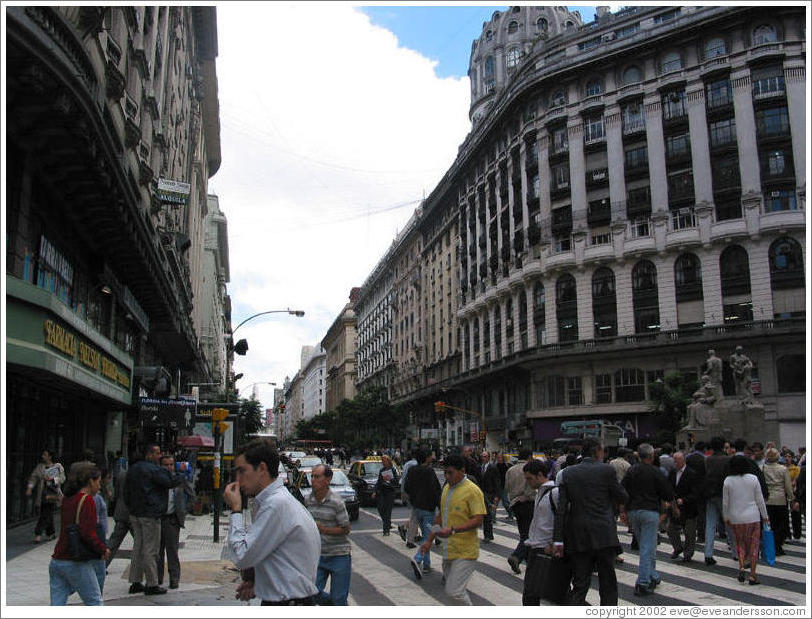Downtown Living

The great dream of urban economic development departments is the ever-elusive residential downtown. Pointing to New York as the classic example, city planners make fast deals with real estate developers to turn unused warehouses into high-end tax-abated condos. One can only imagine the hoped-for demographic: 20-something childless professionals and dual-income empty-nesters prowling the streets in search of sushi, Eames furniture, and $10 cocktails. Life will return to the city core! If only more rich people move in, surely the city's coffers will overflow with new income tax (though none of that abated property tax!), improving education and thereby attracting the middle class back to the city.
But as I look at the prospects of a residential downtown, I'm skeptical. The vast majority of downtown housing, at least here in Minneapolis, is luxury housing. And the existing office buildings are sufficiently densely packed that you can't intersperse them very effectively with residences. I suspect that downtown office districts are going to remain 9-to-5 office districts for quite some time. While there may indeed be hope for the less dense but still "downtown" portion of the city, the office core is probably going to persist as an area primarily for office use.
How about repurposing those downtown office buildings for mixed use? The lower half could be designated for offices, and the upper half could be converted to residential use? A pie in the sky idea, maybe, but at least it would cut down on the single-use density problem...
Coming this week:
Monday: Blogabout!
Tuesday: Blue Sky Guide
Wednesday: Getting Around: Highway Access
Thursday: Downtown Living
Friday: Reader Responses

2 Comments:
Downtown outdated?
Cities emerged as centers of commerce, ideas, and politics from as early as ancient times. The city was the rallying point of the aforementioned, because it brought men into close proximity and offered an environment where interested men could conductsuch exchanges face to face. Downtowns were (and in some places are) the heart of the city.) Downtowns allowed those who were close to be closer. Over time, that became too close for comfort. Even in the times preceding and after the French Revolution, the middle class and wealthy, sought to escape the city during the summer. Perhaps these retreats were the first suburbs? Cities eventually lost population as technology developed.
Man grew clever in the ways of science and created new modes of communication and transportation that let men conduct daily affairs from greater distances. In this era of highways of information and concrete, humans can connect virtually or physically for a limited duration and retreat to a cozier abode that is safer, cleaner and newer than the city.
So unless cities have established cultural, financial and artistic communities, they are not likely to be vital and nor will they likely have thriving downtowns. Downtowns are a dying breed. Generally those in down-and-out-towns, like Cleveland or Detroit, are bums and yuppies (those without kids).
Downtowns to Ghost Towns?
Cities emerged as centers of commerce, ideas, and politics from as early as ancient times. The city was the rallying point of the aforementioned, because it brought men into close proximity and offered an environment where interested men could conduct such exchanges face to face. Downtowns allowed those who were close to be even closer. Over time, dense living arrangements were too close for comfort. New technology was the American crucible and it allowed men seeking space to have it. People moved in large numbers away from the city. The downtown boom turned into a whisper.
With new modes of communication and transportation men could conduct daily affairs from greater distances than ever before. In this era of highways quickly connect information and people. Humans can connect virtually (never leaving home) or physically connect for a limited duration (say head downtown for a meeting) and retreat to a cozier abode that is safer, cheaper, cleaner and newer than the city. Why live downtown when it is a ghost town?
Post a Comment
Subscribe to Post Comments [Atom]
<< Home